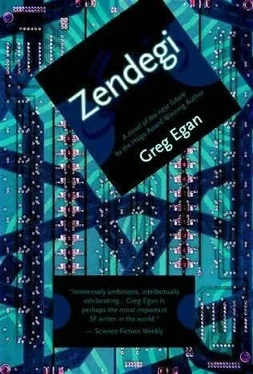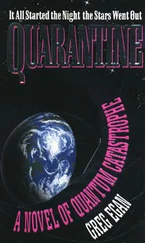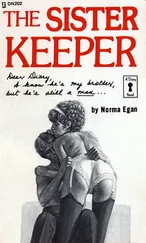‘How long were you together?’
‘Fifteen years,’ he said.
Alice looked stunned; she’d been their neighbour for almost a year, but the subject had probably never come up before. Alice was in her mid-twenties; fifteen years would sound like a lifetime.
Martin said, ‘I think Liz decided that Islamabad was the last hardship post she was willing to put up with.’ He couldn’t blame her; Pakistan and Iran were not the most appealing locations for Western women with no reason of their own to be there. Liz worked in finance, for a company that didn’t mind where she lived so long as she had an internet connection, but Martin suspected that somewhere in the back of her mind she’d imagined that the years in Purgatory were going to be rewarded with Paris or Prague. Martin’s employers reasoned instead that his time in Pakistan was the ideal preparation for their new Tehran correspondent, and after twelve months slacking off as an online news editor in Sydney, a return to the field was long overdue.
‘I’m sorry,’ Alice repeated.
Martin waved her crib-notes in thanks and replied with a parody of a honey-toned late-night DJ from the eighties, ‘I’d better go spin some discs.’
Martin started with the Eurythmics’ Touch. He fussed over the cables and the software settings, checking and rechecking every option, and when he’d finished the recording he played back the entire album to be sure that everything had worked properly.
Annie Lennox’s voice still gave him goose-bumps. He’d only seen her performing live once, in a muddy field in the countryside north of Sydney in January 1984. Talking Heads, The Cure and The Pretenders had all played at the same festival. Unseasonal downpours had drenched the campgrounds and he could still remember queuing in the rain to use the unspeakable toilets, but it had all been worth it.
Martin had been eighteen years old then; he would not meet Liz for more than a decade. In fact, all of his vinyl predated her; by the time they moved in together he’d bought a CD player and now the soundtrack to their entire relationship was already on his hard drive, safely out of sight. These crate-loads of old music would carry him back to the era before her – and with the possible exception of Ana Ng, you couldn’t miss someone you hadn’t even met yet.
It was an appealing idea, and for a few hours he lost himself in Talking Heads, drinking in their strange, naïve optimism. But by late evening he’d started on Elvis Costello and the mood was turning darker. He could have hunted through the crates for something cheerier – there was a Madness compilation in there somewhere – but he was tired of steering his emotions. Even when the music simply made the years melt away, the time-tripping itself was beginning to leave him maudlin. If he kept this up for two weeks he’d be a wreck.
He continued with the recording marathon, flipping and changing the albums like pancakes, but he turned down the playback volume so he wouldn’t have to listen any more. Better to start thinking of the imminent future; Martin opened his browser and began catching up on the news from Iran.
The opposition group that had garnered the most attention in the run-up to the impending parliamentary election was Hezb-e-Haalaa, literally the ‘Party of Now’. Tongue-tied foreigners occasionally pronounced this almost indistinguishably from Hezbollah, ‘Party of God’ (not to mention confusing the Iranian Hezbollah with the Lebanese group of the same name), but the two could not have been more different. Among other things, Hezb-e-Haalaa had announced a policy of recognising Israel; as Dariush Ansari, the party’s founder, put it: ‘Iraq killed a million of our people in the war, but we now have normal diplomatic relations with them. In proposing the same with Israel, I am not giving my blessing to anything that nation has done, any more than our esteemed leaders who sent their ambassador to Baghdad were giving theirs to the invasion of our territory and the slaughter of our people.’
Ansari travelled with a bodyguard to discourage freelance zealots from physically rebuking him for this line of reasoning – and there was still a chance that his big mouth would get him sent to Evin Prison – but his positions on economic, legal and social reform were far less controversial and received substantial support in opinion polls. Even in a perfectly fair and open ballot, Hezb-e-Haalaa probably would not have won a majority in the Majlis – a body that had only limited power, in any case – but in combination with other reformists it could still have embarrassed the conservative president.
However, the final say on eligibility fell to the twelve-member Guardian Council, who had just declared every candidate who happened to belong to Hezb-e-Haalaa unfit to stand in the election. There would be no need to engineer the results to keep them out of the Majlis – risking fresh cries of ‘Where’s my vote?’ – now that they had been pre-emptively wiped right off the ballot.
The flight to Singapore left Sydney at the very civilised hour of nine a.m., but Martin had been up for forty-eight hours dealing with a plethora of last-minute tasks and his biological clock no longer recognised the distinction between good and bad times to travel. He spent the journey drifting fitfully in and out of sleep. Eight hours later as he strode through Changi Airport he still felt like a pared-down version of himself, an automaton with tunnel vision ignoring everything but signs that promised to take him closer to the right gate for Dubai. He actually had a ninety-minute layover, but he could never relax until he knew exactly where he had to be at departure time.
On the flight to Dubai the mental fog began to lift. He knew he’d have a headache for the next few days, but at least he was sure that he’d ticked everything off his list and wouldn’t have to send a stream of emails back to Sydney begging people to tie up loose ends for him. If the plane went down over the Indian Ocean he could drown in peace, with no fear of real estate agents blacklisting him in the afterlife for failing to dryclean his curtains.
The passenger in the seat beside him was a telecommunications engineer named Haroun who was headed for Abu Dhabi. When Martin explained that he was going to be covering the Iranian election, Haroun replied good-naturedly that he doubted it would be as newsworthy as the previous, presidential vote. Martin couldn’t argue with that prognosis; after the turmoil of 2009 this was likely to be the most tightly managed poll in decades. Still, no one believed that the fire beneath the ashes had been extinguished.
In his present state it was pointless re-reading his background notes on the election; he slipped on his headphones and started up iTunes. The music library software had provisions for storing cover art and he’d started out taking photos of each album himself, but it had been hard to get the lighting and the angles right, so he’d ended up grabbing images off the net instead. Many of the sleeves had also included lyrics, notes or extra artwork, but he hadn’t had time to digitise any of that. The day before he’d flown out he’d taken the crates to a charity shop in Glebe, but they’d told him that unless he had collectors’ items, vinyl wasn’t worth their shelf space. By now, it would all be landfill.
Martin flipped through the cover art. It was certainly a richer cue for memory than a mere list of names, but though the images had been endowed with perspective and reflections in some imagined glossy shelf-top, the faux-3D effects made it look like a museum exhibit trying too hard.
No matter; he had the music itself, and that was the main thing. He’d even diligently backed up everything to an external drive; his laptop could fry itself and these memories would still survive intact.
Читать дальше











